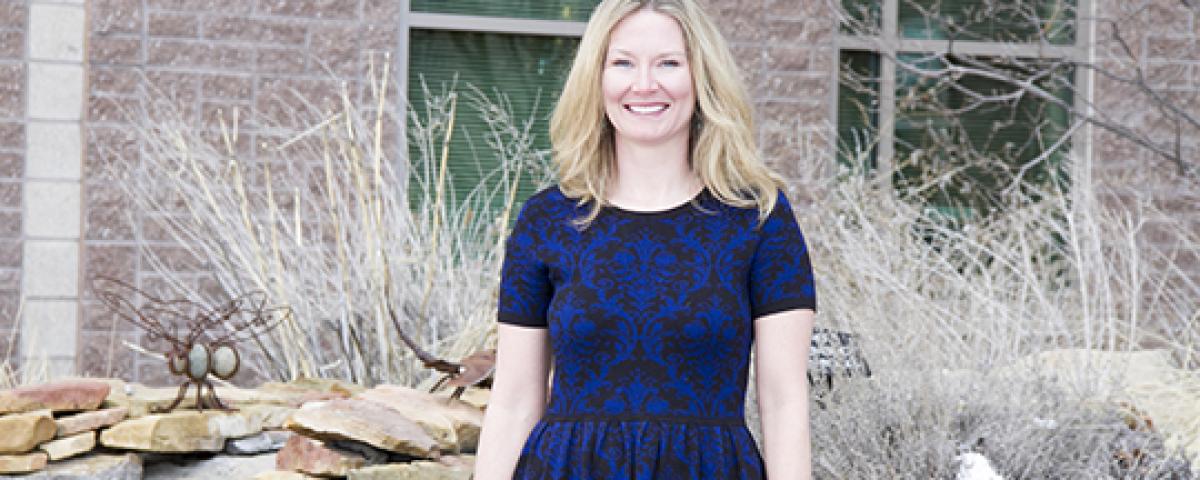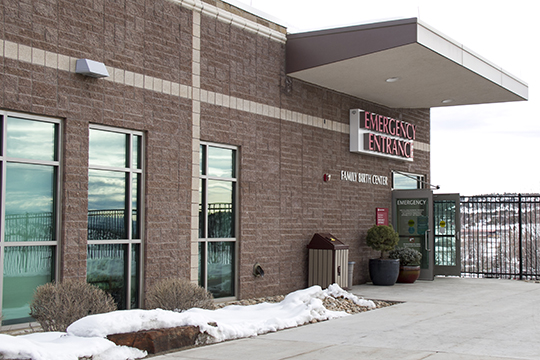
If you have been sexually assaulted, you want to feel like someone is there to take care of you.
Thanks to some dedicated nurses, backing from the hospital’s senior leaders, Mercy Health Foundation and a grant, Mercy Regional Medical Center is ready and well-trained to help victims — no matter when they show up at the Emergency Department.
Mercy’s six Sexual Assault Nurse Examiners (SANE nurses) are ready to appear at a moment’s notice virtually around the clock. Their care includes everything from an examination, to collecting evidence, to assuring victims that their immediate needs are being met.
Bethany Bernal, BSN, RN, SANE, RNC-OB, has been SANE Nurse Coordinator since April 2015, and she’s grateful for the backing she’s received from Mercy leaders to strengthen the program. Also, a VOCA (Victims of Crime Act) federal grant has allowed Bernal to expand the SANE Program, fund education for the six nurses, and allowed her time for community outreach — which includes educating everyone from law enforcement to the general public. The VOCA grant means she has 24 hours a week instead of 7 to administer the SANE Program.
Mercy’s SANE Program began in 2000 when an emergency room nurse was troubled by the long waits victims endured to see a nurse trained in sexual assault. As the program has grown, and more nurses have been trained, the number of patients has risen sharply. Mercy had 12 cases in 2013, and 59 cases in 2018.
Perhaps counterintuitively, this is actually a good thing, Bernal said. She hopes to see those numbers increase. It means that more victims feel safe coming to the emergency room for care. It may have nothing to do with the number of incidents; studies show that only one in three victims report a sexual assault.

Bernal attributed the rise both to public awareness spurred by the #MeToo movement, and to word spreading of Mercy’s readiness and expertise in the SANE Program.
This combination “has given women some empowerment and some reassurance to know they can come and be cared for and they don’t have to talk to law enforcement if they don’t want to,” Bernal said. “They know we have a reliable program at Mercy.”
Although victims are not required to report to law enforcement, about 90 percent who arrive at Mercy do. If victims are under 17 or over 69, a sexual assault must be reported. Twenty five percent of Mercy’s cases involve a minor (under-17). Twenty percent involve a Native American. A small percent of victims are men.
Training SANE
SANE nurses have a difficult but rewarding task. Nurses often enter an exam room where a woman lies in a fetal position in a bed or cowering with her back to the wall, unable to make eye contact. The reward comes at the end, when the relieved victim is able to make eye contact with the nurse and leaves with her dignity restored.
“She’s so grateful for what you’ve done for her,” Bernal said. “And she feels safe; she feels believed.”
Nurses must take 64 hours of online training, a two-day clinical skills lab, and more before they’re qualified. Three years’ critical care experience is required.
“I really want to highlight the team,” Bernal said. “They’re very committed. They’re compassionate. They do see it as a community service and a true commitment to Mercy’s mission. They absolutely love the job.”
Each case is different. Victims range from children to those with substance abuse issues, to the homeless, to those with mental health problems. Or none of the above. Cases generally take from four to six hours, but can last as long as nine.
Funding
Over the years funding has come from various sources. Originally, Bernal’s position was paid for by Sexual Assault Services Organization through a federal VAWA (Violence Against Women Act) grant. In 2017 Mercy stepped up to make sure the position continued, and for the last two years a VALE (Victim Assistance and Law Enforcement) grant through the local District Attorney’s office has greatly funded the SANE Program.
In 2018, due to the efforts of the Mercy Health Foundation, the VOCA grant came through. The Foundation started the ball rolling to coordinate seven Catholic Health Initiatives Colorado Foundation-Centura hospitals to co-write a grant. This gave them more recognition, kept them from competing for the same money, and eased the workload for VOCA. The nearly $1 million grant — 14.5 percent goes to Mercy — is good for 2019 and 2020.
Bernal is confident that funding will continue into the foreseeable future.
“The nation sees we have to have this type of nursing in every community,” she said. “I don’t see this slipping through the cracks.”
How the SANE Nurse Helps
Mercy and its community partners offer a spectrum of understanding, care, help, and resources for sexual assault victims. Here’s a quick look at the process for those who show up in the emergency room at Mercy Regional Medical Center.
First, a triage nurse immediately summons the on-call Sexual Assault Nurse Examiner (SANE nurse). A doctor sees the victim only for a major injury. One of the six highly skilled and trained SANE nurses arrives as soon as possible to provide one-on-one comfort and medical attention. (The nurses rotate on-call coverage.) That care includes, as needed:
- Protection against HIV and other sexually transmitted diseases.
- Evidence collection, such as specimens and forensic photography.
- A head-to-toe assessment.
- A mental health expert, particularly if the victim is suicidal or homicidal.
- If the victim requests law enforcement, a detective will conduct an interview.
- The SANE nurse, with the help of Sexual Assault Services Organization (SASO), will make sure the victim has a safe place to go before being discharged. Mercy’s SANE Program has community partners in both Colorado and New Mexico, including SASO, Alternative Horizons, and Housing Solutions for the Southwest.
Victims sometimes arrive at Mercy on their own. If their first contact is law enforcement or SASO, those agencies may usher them toward the emergency room. The SANE nurse and SASO advocate evaluate each victim and help them find the necessary resources. Fort Lewis College students will be referred to the school’s Title IX coordinator. Group counseling and support groups are available for anyone from high school to adult age. Each victim leaves Mercy with a folder detailing all the resources available to them in La Plata County.
Emergency room stays can last four to six hours. But costs are minimal. If evidence is collected, law enforcement pays for that. If there is an injury outside the SANE nurse exam, a victims’ compensation program will pay for that.
Important phone numbers:
If there’s immediate danger or urgent medical care needed: call 911
Sexual Assault Services Organization 24-hour hotline: 970-247-5400
SASO office: 970-259-3074





